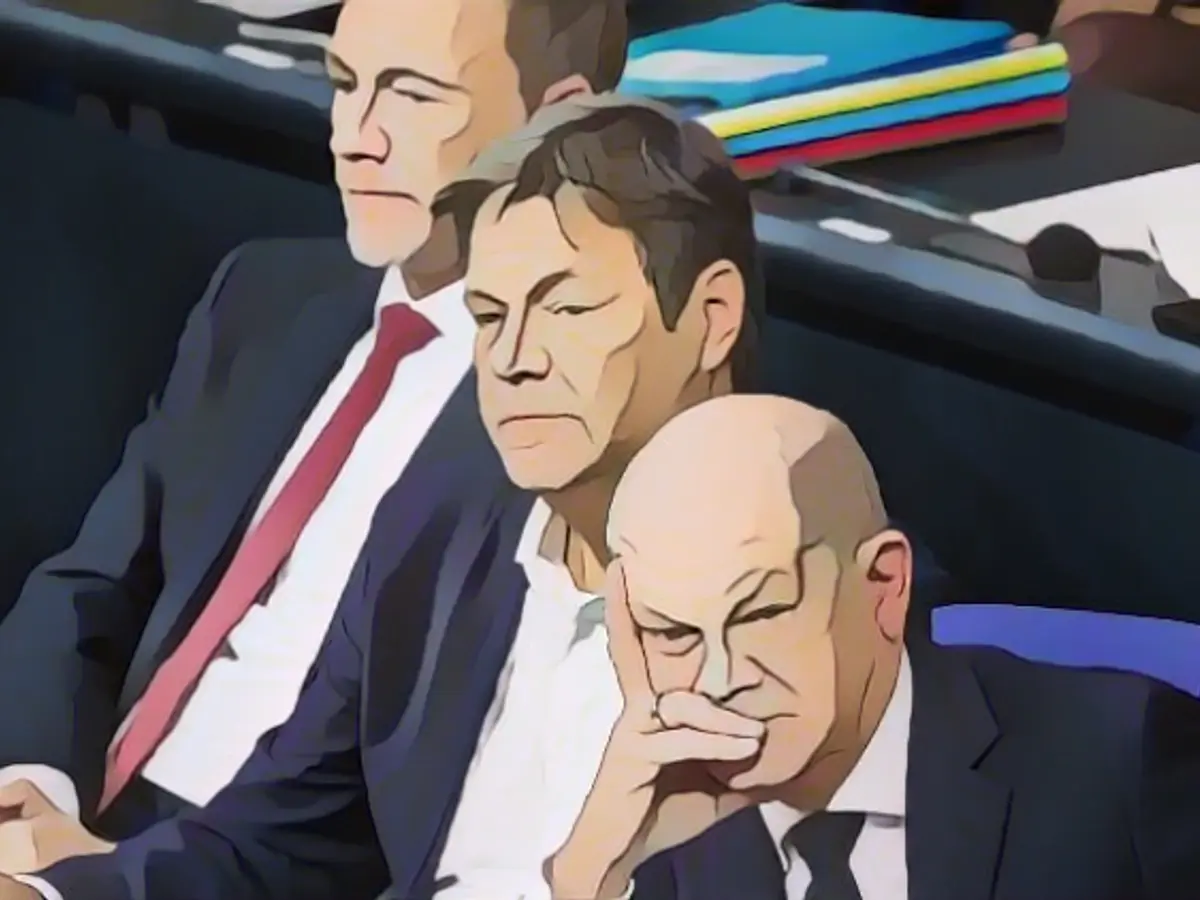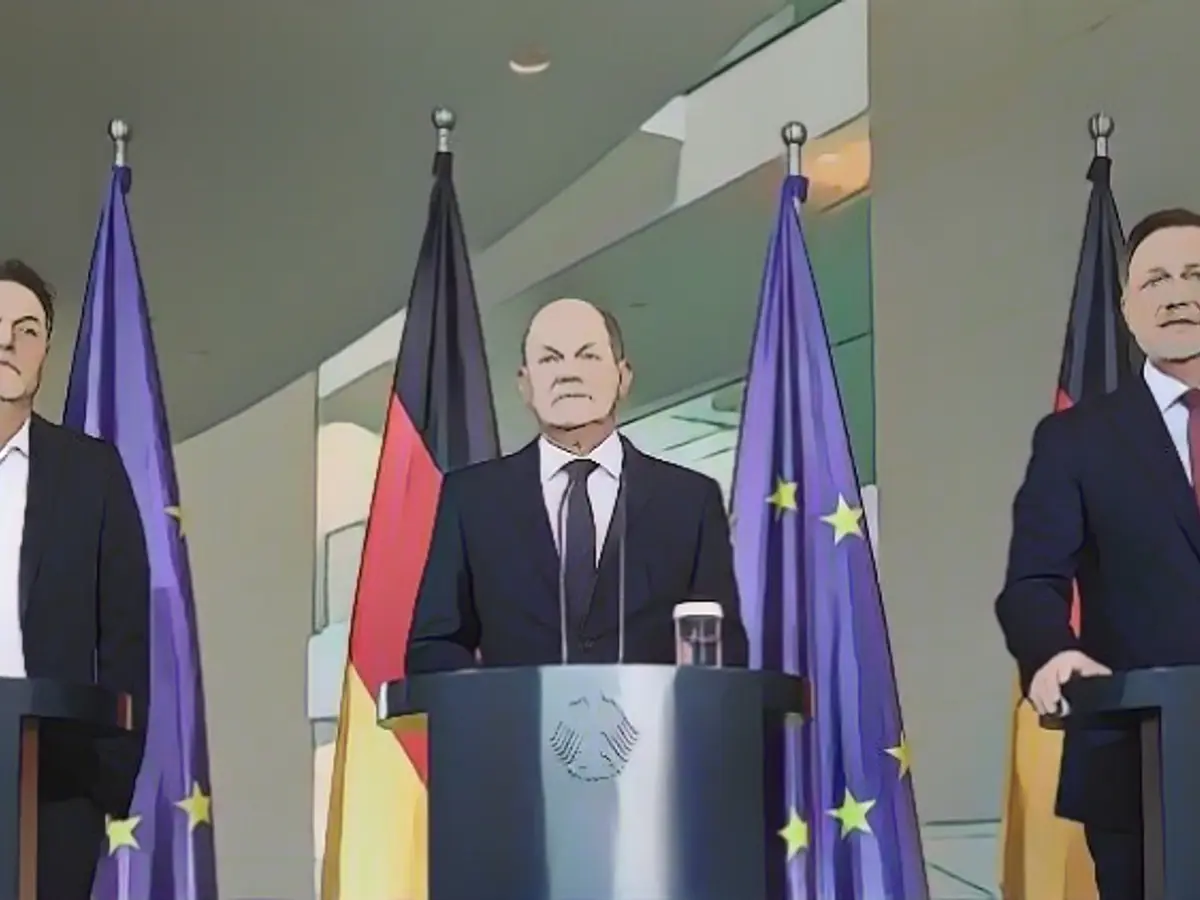"Climate Protection on the Line: Debt Brake Dilemma"
The Federal Constitutional Court's ruling on the budget has put the German government in a tight spot. The unconstitutionality of the Climate and Transformation Fund (KTF) and the Economic Stabilization Fund has left the federal government scrambling for financial solutions. The implications of this ruling, as well as Germany's current budget deficit, are threatening the country's climate protection plans and the energy transition. Niklas Höhne, co-founder of the New Climate Institute, argues that in light of these challenges, the German government should consider declaring an emergency to circumvent the debt brake and invest in climate protection.
The Potential for an Emergency Declaration
According to Höhne, climate change is an existential threat, making it an appropriate topic for an emergency declaration. The coronavirus pandemic and the energy crisis have already demonstrated that the government has the power to sidestep the debt brake in times of crisis. Höhne emphasizes that putting money into climate protection now is a smart investment, as the cost of doing nothing would be much higher in the long run.
The question of whether the current circumstances warrant an emergency declaration is a matter of debate. However, Höhne emphasizes that time is of the essence, and Germany cannot afford to waste any more time in addressing climate change. In his view, the government should have declared an emergency for climate protection much earlier, setting up a specialized fund or temporarily suspending the debt brake to focus on climate-related projects.
Overcoming Challenges
If an emergency declaration is made, Höhne suggests several steps to address the climate crisis:
- Eliminate environmentally harmful subsidies: The elimination of subsidies for diesel cars, company cars, and kerosene would save the government 65 billion euros annually. This money could be reallocated to climate-friendly projects.
- Introduce a carbon price: A CO2 levy on fuels in the transportation and building sectors could incentivize the switch to cleaner alternatives and generate revenue for climate investment.
- Implement climate-friendly projects: Once these measures have been implemented, the government could declare an emergency, set up a special fund, and invest in climate-related infrastructure.
Balancing Perspectives
While some argue that the government should prioritize fiscal responsibility and adhere to the debt brake, Höhne warns that delaying climate action comes at a significant cost. Germany is not alone in addressing this challenge; the United States is already taking measures to stimulate the growth of green industries through the Inflation Reduction Act. The question, then, is whether Germany wants to stay competitive in the global market and position itself for the future.
Looking Ahead
The German government currently faces the challenge of balancing climate protection, budgetary constraints, and political stability. The Federal Constitutional Court's ruling has added another layer of complexity to the situation, requiring the government to rethink its climate policy plans.
However, the commissioner for climate protection, Niklas Höhne, insists that halting climate action is not an option. The German government must accelerate its efforts to invest in climate-friendly technologies and policies, regardless of the current political climate. Whether an emergency declaration is the best solution remains to be seen, but what is clear is that the time to act is now.
Enrichment Data
Germany's struggles with climate protection funding have been compounded by political challenges, including the suspension and eventual collapse of the coalition government. In times of political instability, the lack of a clear budget and spending plan has left climate-related projects in limbo. To mitigate some of these effects, Germany's Federal Ministry of Education and Research has provided interim funding for battery research projects to maintain continuity. A long-term funding strategy for climate-related projects remains uncertain until the new government takes office.
In international climate talks, Germany remains a key player, using its global influence to promote a socially just and economically successful move to climate neutrality. At the same time, the country's inability to fully invest in climate change action due to its debt brake rules has sparked criticism from some quarters, who argue that the government should take on more debt to position its industries for the future.








